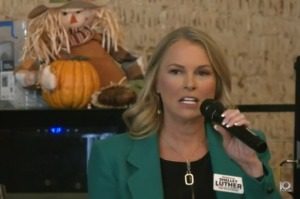Snopes defends fact-checking Babylon Bee, cites research on Christian satire site

Snopes has fired back at claims that fact-checking stories on Babylon Bee are unnecessary, posting an article from an academic research site which claims that many believe the popular Christian satire site’s posts.
Snopes posted an article from The Conversation titled “Too Many People Think Satirical News Is Real” last Friday, that was written by R. Kelly Garrett, professor of communication; Robert Bond, associate professor of communication; and Shannon Poulsen, doctoral student in communication, from Ohio State University.
“Over the last several months, we’ve surveyed Americans’ beliefs about dozens of high-profile political issues. We identified news stories – both true and false – that were being shared widely on social media,” explained the researchers.
“We discovered that many of the false stories weren’t the kind that were trying to intentionally deceive their readers; they actually came from satirical sites, and many people seemed to believe them.”

The Ohio State researchers asked a sample of 800 Americans whether they believed 120 “widely shared falsehoods.” They found that “stories published by The Bee were among the most shared factually inaccurate content in almost every survey we conducted.”
“Members of both parties failed to recognize that The Babylon Bee is satire, but Republicans were considerably more likely to do so,” continued the researchers.
“Of the 23 falsehoods that came from The Bee, eight were confidently believed by at least 15% of Republican respondents.”
The study also found that nine of the widely believed falsehoods came from The Onion, a satirical news site with a more liberal slant, and that with those satirical stories, “Democrats were more often fooled, though they weren’t quite as credulous.”
Kyle Mann, editor-in-chief of the Babylon Bee, denounced the research on Twitter, taking issue with the researchers paraphrasing the satirical story claims when asking their sample.
"That survey @snopes shared is horrible. Did they seriously paraphrase Bee stories and ask people if they thought they were true? That's an awful way to figure out what percentage of people will believe satire," tweeted Mann.
"This is totally different from how people actually engage with our stories, where the over-the-top content on the site and social feeds, the site name, our freakin' tagline, a goofy photoshop, are pretty darn big clues that it's satire ... Do people get fooled? Sure, sometimes. But this survey is a horrible way to prove that."
The conservative website Red State also took issue with Snopes' actions, saying that they have spent "an absolutely absurd amount of time fact-checking" the Bee.
"... it appears that Snopes’ real problem with The Babylon Bee is not that they don’t understand satire, but that The Babylon Bee’s particular brand of satire — coming from a Christian, conservative perspective — annoys them," wrote Sarah Rumpf of Red State.
"They haven’t engaged in a vigorous, scorched-earth fact-checking of Saturday Night Live, The Daily Show, or Real Time with Bill Maher, or any number of liberal-leaning comedy shows and websites."
Snopes and Babylon Bee have had their differences in recent times over the well-known fact-checking website posting explanations that certain widely-shared Bee stories were untrue.
Last month, Babylon Bee founder and former owner Adam Ford took to Twitter to post a series of tweets denouncing a recent Snopes fact-check on a recent satire story.
Ford objected to the rhetoric of the Snopes post, especially when it labeled the satire story “an apparent attempt to maximize the online indignation.”
“An ‘apparent attempt to maximize the online indignation’? What a subjective and malicious statement! This is a ‘fact check’?” tweeted Ford at the time.
“We ‘published a fictionalized version of the story’? That's certainly an interesting way of saying we satirized an absurd real-life event. You know, that thing that all satirical outlets do.”
Ford went on to label the Snopes entry a “hit piece” that falsely placed malicious intentions on the Babylon Bee’s work while not treating other satire sites like The Onion in a similar manner.
“They've ascribed dark motives to the Bee while laughing off Onion fact-checks like HAHAA GUYS, ‘of course’ it's satire! OF COURSE! Some readers just got confused,” continued Ford.
“The Bee has been ‘Snoped’ plenty of times before (and had to endure Facebook purgatory once because of it). But what they've written this time certainly seems like an attempt to delegitimize and demonize an important satirical outlet, and that is totally unacceptable.”
For their part, Snopes edited the entry to correct some of the wording that Ford had objected to in the original fact check.
“To address any confusion, we have revised some of the wording mostly for tone and clarity. We are in the process of pioneering industry standards for how the fact-checking industry should best address humor and satire,” read the editor’s note in part.
The Babylon Bee announced in late July that they were considering legal action against Snopes for their fact-checks, arguing that the site was unjustly targeting them.
“By lumping us in with fake news and questioning whether we really qualify as satire, Snopes appears to be actively engaged in an effort to discredit and deplatform us,” stated the Bee, as quoted by the Washington Examiner.
“While we wish it wasn't necessary, we have retained a law firm to represent us in this matter.”




























